Setup your lemwarm account
lemwarm improves your email deliverability by gradually increasing the number of emails you send. It mimics natural email activity, helping build a positive sender reputation over time.
It works by sending and receiving emails between lemwarm users, simulating real conversations and interactions.
Why Use lemwarm?
- Improved deliverability: Keeps your emails out of spam folders by warming up your account.
- Automated process: Automatically sends and replies to emails, creating a natural conversation pattern.
- Increased reputation: Builds trust with email providers, improving your overall deliverability.
Step-by-Step Guide to Setting Up Your lemwarm Account
Follow these easy steps to set up your lemwarm account and start improving your email deliverability:
1
Log into Your lemwarm Account
2
Click on the Connect Email button
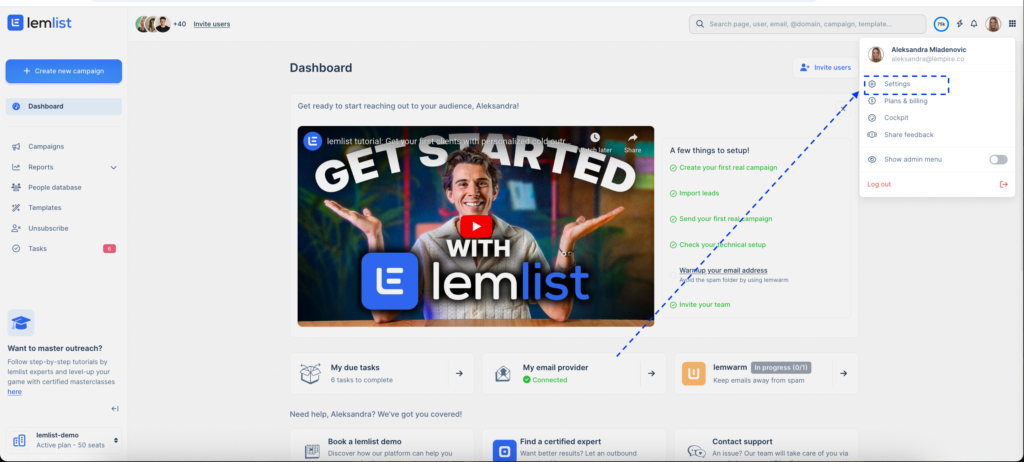
3
Enter your email credentials; lemwarm supports various email providers like Gmail, Outlook, and custom SMTP/IMAP servers.
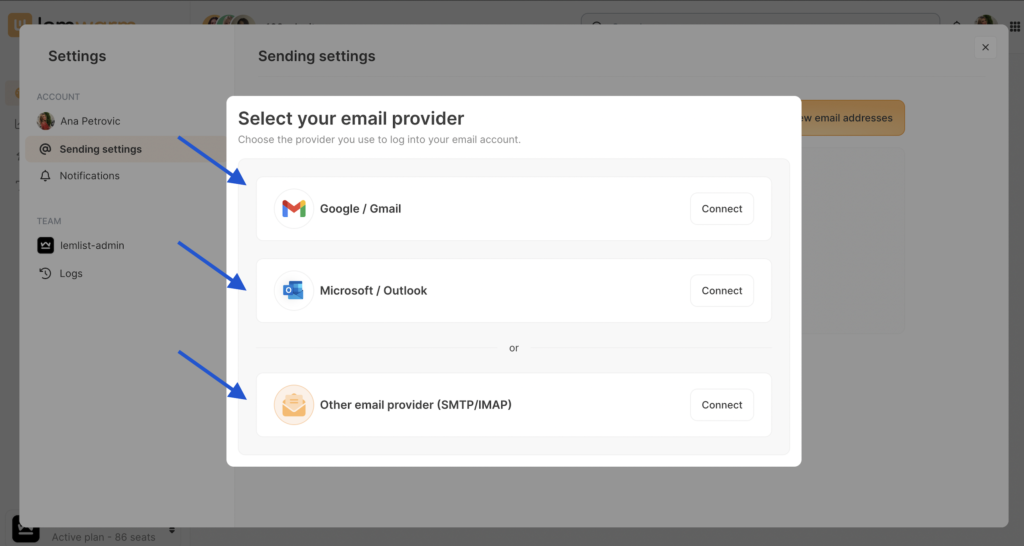
4
If you would like to set “Other email provider” click on advanced settings
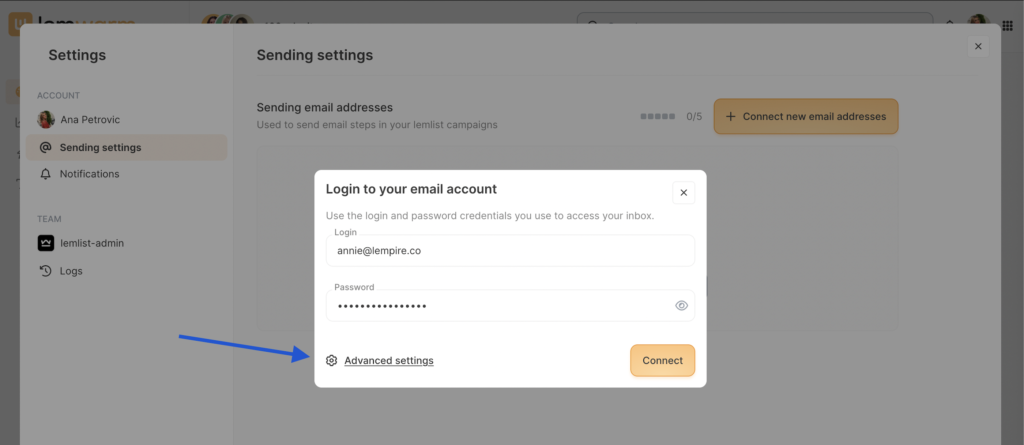
5
Add the SMTP and IMAP servers and ports, depending on your specific email provider. And double check the SSL encryption:
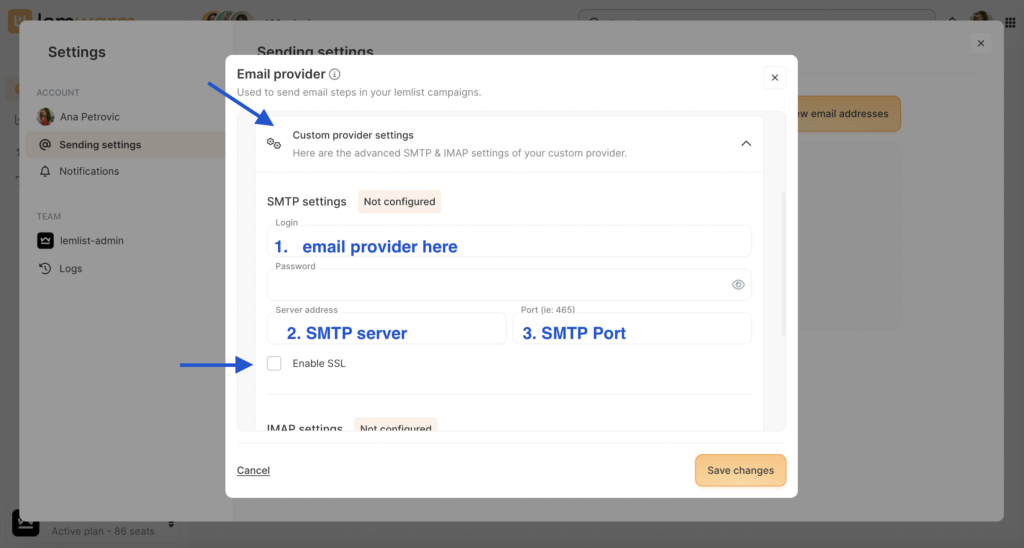
6
Save changes
Configuring Your Warm Up Values

- Go to Warm up.
- Check your deliverability score. This score helps you adjust your warm-up settings:
– Score < 65: Warm Up = 10, Ramp Up Increment = 1
– Score 65-80: Warm Up = 20, Ramp Up Increment = 2
– Score > 80: Warm Up = 40, Ramp Up Increment = 3 - Account age adjustments:
– Less than 6 months: Max emails/day = 30, Ramp Up Increment = 1
– More than 6 months: Max emails/day = 40, Ramp Up Increment = 2
Tips for Success
- Monitor your progress: Track stats like sent emails, open rates, and replies in the lemwarm dashboard.
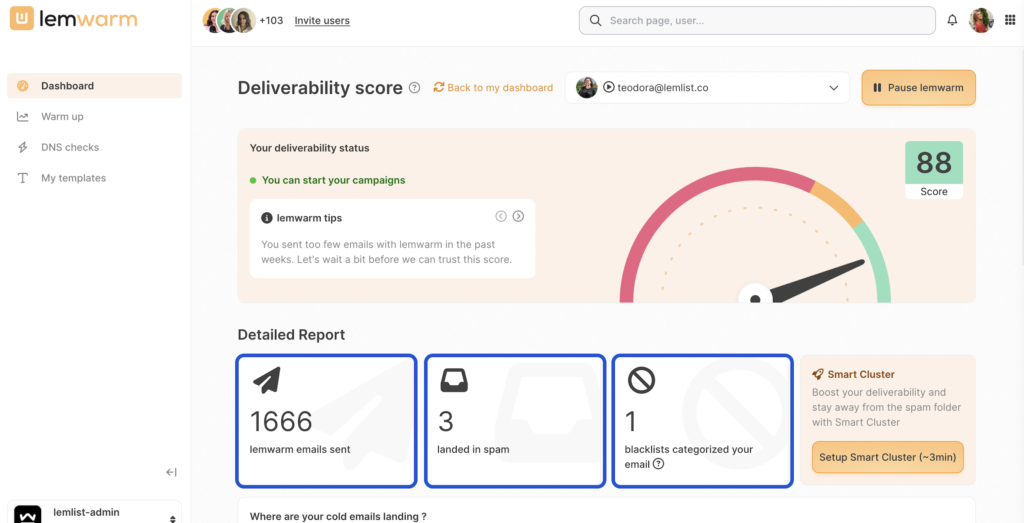
- Where your sent emails are landing and where your replies are landing
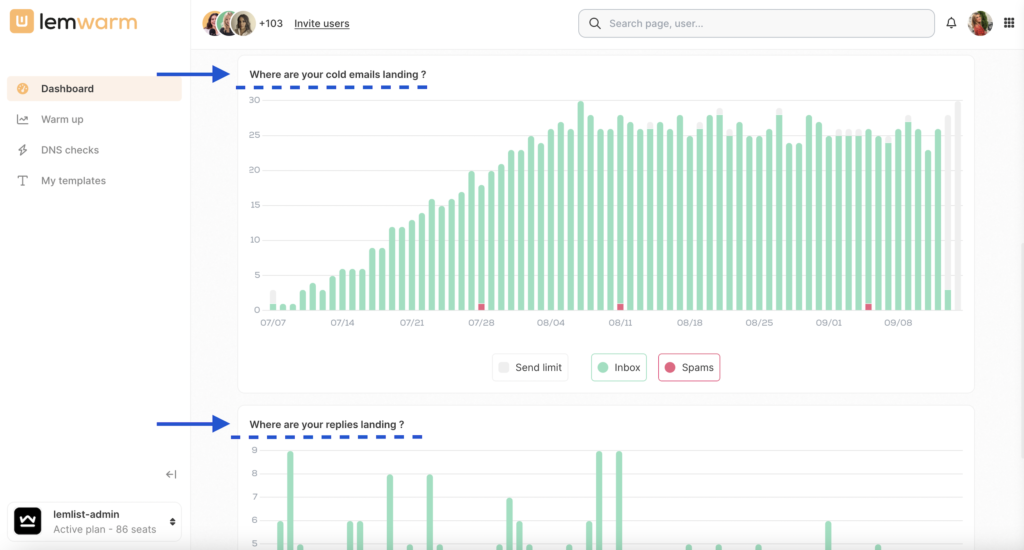
- Be patient: The warm-up process takes 3-5 weeks. Avoid sending campaigns during this period. If necessary, limit your daily emails to 5-10 and monitor your score.
Following these steps will ensure your emails land in your recipients’ inboxes, not spam.
How useful was this lesson?
Copied
